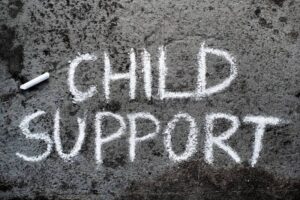
Contempt of Court in the Family Law Setting
N.C. Court of Appeals Family Law Update – Contempt of Court
The Powers Law Firm in Charlotte is dedicated to providing helpful information to people interested in the NC Divorce Laws.
To that end, we regularly post materials on our blog and website regarding advances in the law and legal rulings.
We believe good decisions during divorce are predicated on good information and sound legal advice. Divorce is complicated and sometimes an emotional, messy affair. We want to help people. That’s why we do what we do – Bill Powers, Charlotte Divorce Lawyer
What’s in this Blog Post?
In this blog post, we will discuss civil contempt in family law cases in North Carolina.
Civil contempt can serve as a powerful tool to enforce Court Orders.
In the family law context, it is often used to compel parents to comply with child custody and support orders. 
What’s new in Divorce in North Carolina?
N.C. Court of Appeals, on July 5, published a new batch of cases, two of which provided insight and clarity into some nuances within NC family law.
In Bossian v. Bossian, the Court—authored by Judge April Wood—touched on an array of issues including private modification of a custody order, effectuating a prior contempt order, and Rule 59 & Rule 60 Motions.
Background Fact Pattern
In Bossian, the parties were married in August 1998 and had two minor children before they eventually separated and divorced after February 2013.
A child custody and support order was entered in February 2015 granting primary custody of the parties’ two minor children to the Plaintiff-mother and secondary physical custody in the form of visitation during the minor children’s school breaks to the Defendant-father, who was living in Rhode Island.
The Order also required Defendant to pay $1,225.87 in monthly child support until the order was modified or terminated.
In March 2015, the court resolved the pending equitable distribution claim requiring Defendant to pay a $1,800 distributive award to Plaintiff from the proceeds following the sale of the marital home. These two orders remained in effect and were never modified by the court.
Shortly after, in January 2016, the parties privately agreed—absent the court’s involvement or permission—to modify the custody order allowing the parties’ younger minor son to move and live with Defendant-father, who ostensibly would assume primary custody.
The minor child remained with Defendant from January 2016 until July 2018 when he returned to North Carolina to live with Plaintiff. Defendant did not pay child support pursuant to the child support order during this period.
Later, in March 2020, Plaintiff filed a show cause motion to hold Defendant in contempt for Defendant’s failure to pay child support, unreimbursed medical expenses, and the distributive award pursuant to the March 2015 Order.
After a contempt hearing, the trial court entered an order in September 2020 holding Defendant in contempt for his failure to pay his aforementioned legal obligations, as well as awarding Plaintiff attorney’s fees.
The court set Defendant’s purge amount at $31,398.52 to be paid by the end of October 2020. The Contempt Order required Defendant to be taken into custody if the amount was not paid by the deadline.
A few days following the Contempt Order, Plaintiff filed a Rule 60 Motion for Relief to correct a clerical error resulting in a lower miscalculation of Defendant’s child support arrearages. 
Defendant filed a Rule 59 Motion for Relief from Civil Contempt and Attorney’s Fees arguing that no evidence was presented at the hearing of Defendant’s current ability to pay—a statutory requirement to be held in civil contempt—contesting his civil contempt adjudication.
Both the party’s respective motions were heard at a hearing in April 2021. The presiding judge granted Plaintiff’s Rule 60 Motion and denied Defendant’s Rule 59 Motion.
The judge concluded the hearing by inquiring whether Defendant had purged his contempt pursuant to the September 2020 Contempt Order. The judge found that Defendant had the present ability to purge his contempt and ordered Defendant to pay $9,300—a reduction from the previously ordered $31,398.52—and be taken into custody until he had satisfied this purge amount.
Defendant appealed the trial court’s granting of Plaintiff’s Rule 60 Motion, denial of Defendant’s Rule 59 Motion, and Defendant’s order to be taken into custody.
Court of Appeals’ Holding & Key Takeaways
The Court of Appeals in its reasoning provided several takeaways in its Bossian holding:
1. A Judge May Effectuate a Previously Adjudicated Contempt Order Without Providing New Notice to the Contemnor
Defendant’s first argument was that the trial court’s holding him in contempt and his arrest after the April 2021 hearing on the party’s respective Rule 59 and 60 motions was a violation of his due process rights because he was not provided notice of the potential contempt hearing and of his arrest.
The Court disagreed holding that so long as the original contempt order was properly initiated—via a judicial order to show cause—and the contemnor had notice of the order and has presently not purged his contempt, then it is within a trial court judge’s discretion whether to stay or effectuate the enforcement of a civil contempt order.
Neither the trial court’s use of a second contempt order to enforce the original contempt order, nor the modification of the original purge amount in a second contempt order, constitutes a “new” contempt order that would require new notice.
2. A Clerical Error in a Contempt Order Does Not Give a Contemnor Legal Justification to Not Comply with the Order
The next argument that Defendant makes is that because both parties were contending that there were errors in the original contempt order, his failure to make the ordered payments could not be willful because  he did not have the ability to comply, thereby preventing him from being held in contempt.
he did not have the ability to comply, thereby preventing him from being held in contempt.
The Court noted that two statutory elements of civil contempt are that the contemnor’s violation is willful (i.e., an ability to comply and an intentional failure to do so) and he must have the actual ability to take reasonable measures to comply. However, it disagreed with Defendant’s argument citing Rule 62(b), and held that absent a Rule 62 motion to stay a contempt order, a contemnor’s compliance is mandatory.
3. Private Agreement, Absent a Court Order, Does Not Justify Noncompliance with a Court Order
The final key takeaway from the Court of Appeals’ ruling in Bossian is a contemnor’s noncompliance is still willful regardless of if the parties privately agree to not comply with a court order.
Defendant argued that it was error for the trial court to deny his Rule 59 motion because the evidence showed that his non-payment of his child support obligation was not willful due to the parties’ private modification of the child custody agreement.
The Court was unpersuaded by this argument.
The Court emphasized that pursuant to N.C. law, a child support order can only be modified by the court via a pending child support action and a showing of changed circumstances.
The Court iterated, and then later reiterated, that parties may not modify a court order through extrajudicial written or oral agreement, and a party has an obligation to follow a court order until it has been lawfully changed via judicial decree.
Charlotte Divorce Lawyers – Powers Law Firm
- Equitable Distribution
- Civil Contempt
- Child Support
- Alimony
- Visitation
- Why you should hire a Divorce Lawyer
- Domestic Violence Protective Orders

Rylan’s Law Improves Child Custody Oversight in North Carolina
 A new North Carolina measure called Rylan’s Law will increase oversight in child custody cases, according to an article by The News & Observer.
A new North Carolina measure called Rylan’s Law will increase oversight in child custody cases, according to an article by The News & Observer.
Rylan’s Law came into existence to address existing inefficiencies in the state child custody system. Specifically, lawmakers point to the notorious story of a young boy named Rylan. This boy drowned in a pool in April 2016, only weeks before his second birthday.
Before his death, domestic violence concerns forced Rylan and his sister into foster care in October 2015. But several months later, a judge ruled to return the Ryland and his sister to their mother in December 2015. This happened despite the mother’s pending case for child abuse. Approximately four months later, Rylan was dead.
To help prevent this type of disaster from reoccurring, North Carolina lawmakers designed Rylan’s Law. The law will require additional monitoring and oversight in the determination of child custody cases. Specifically, social workers must witness several interactions between the children and parents before making a child custody recommendation.
Considering the nature of this news development, it feels like a great time to review North Carolina laws concerning child support.
Best Interests of the Child in North Carolina
North Carolina laws place a premium on the best interests of the child. This is the single most important factor in any determination of child custody in North Carolina. Essentially, the courts will try to determine that custody arrangement will provide the best environment for the child or children.
In determining the best interests of the child or children, the courts will consider safety, domestic violence, income and other relevant factors. It is important to note that the parents or children can request specific custody arrangements. But the courts are not required to grant such requests. The courts are only responsible for safeguarding the best interests of the children involved.
Variations of Child Custody in North Carolina
There are two major types of child custody in North Carolina – sole custody and joint custody. We will discuss the specific characteristics of each type of custody below.
Sole custody in North Carolina refers to a situation where one parent has complete responsibility for the children. The other parent does not have any power over or rights concerning the children.
Joint custody in North Carolina refers to a situation where both parents share responsibility for their children. While it does not have to be an even split, both parents share decision-making power and custody.
Reach Out to Our Office for Help
Whether you are dealing with child custody, divorce or other facets of family law, it is generally prudent to consult with a knowledgeable family law attorney. The attorneys at Powers Landreth PLLC in Charlotte, North Carolina, feature more than 20 years of combined legal experience. Contact us today for assistance.
Resource:
newsobserver.com/news/politics-government/state-politics/article158688434.html
Learn More
Key Considerations for Child Custody in North Carolina
 Today we will review a handful of key considerations for child custody situations that arise in North Carolina. Child custody is often the most challenging part of a divorce, with both parents fighting for custody of their children. In order to maintain focus on the children, North Carolina’s statutory approach places a premium value on the best interests of the children.
Today we will review a handful of key considerations for child custody situations that arise in North Carolina. Child custody is often the most challenging part of a divorce, with both parents fighting for custody of their children. In order to maintain focus on the children, North Carolina’s statutory approach places a premium value on the best interests of the children.
How Does North Carolina Determine Child Custody?
The most important factor in the determination of child custody in North Carolina is the best interest of the children involved. In determining best interest, the court attempts to examine multiple angles of the child’s domestic reality. As a result, the working and living situations of the parents come into play. The presence or threat of domestic violence is also an important consideration.
It should be noted that the parents can decide child custody outside of the courts. If the parents are able to come to a mutually acceptable agreement concerning child custody, then the matter is settled. Though if the court determines that the agreement is not in the best interests of the children, they can intervene.
Do North Carolina Laws Favor the Mother over the Father in Child Custody?
In short, no, North Carolina does not favor the mother’s rights over the father’s rights to child custody. Both parents have equal rights to custody. The courts will apply the best interests of the child standard to determine the proper custody arrangement.
Do Children Have the Ability to Influence the Custody Arrangement?
Unlike other states, North Carolina does not impose an age limit on children voicing an opinion on custody preferences. The court has discretion to hear testimony from children concerning their preferred custody arrangement. Though even if the court does hear such testimony, there is no requirement to abide by the child’s preferences.
Are Child Custody Arrangements Permanent in North Carolina?
Child custody arrangements are not permanent in North Carolina. There is a specific process in place for modifying child custody arrangements. Parents must demonstrate a substantial change in circumstances. It does not matter if the change in circumstances is positive or negative. But the change in circumstances must have a direct impact on the children involved.
Let Us Help You with Your Case
There can be numerous challenges in any matter concerning child custody, divorce or other aspects of family law. To overcome these challenges, it can be useful to seek counsel from a skilled family law attorney. The Charlotte legal team at Powers Landreth PLLC is prepared to assist you today.
Learn More
Modifying Child Custody Orders
 When a divorce involves children, the North Carolina court system may have to help the parents determine how the children will spend their time between the two parents. In an earlier post, we briefly discussed child custody orders and explained that they were somewhat of a last resort in instances where the parents themselves could not agree on a custody arrangement.
When a divorce involves children, the North Carolina court system may have to help the parents determine how the children will spend their time between the two parents. In an earlier post, we briefly discussed child custody orders and explained that they were somewhat of a last resort in instances where the parents themselves could not agree on a custody arrangement.
After a custody order is set into place, it is usually in the best interests of everybody involved to abide by the order. However, custody orders are not set in stone. The courts can revisit them. Therefore, sometimes, one party will seek to modify a prior custody order.
The Law
According to North Carolina law, and as reaffirmed in a recent North Carolina Court of Appeals case, Laprade v. Barry, in order to modify a court child custody order, the party that argues for modification must show that a substantial change of circumstances is affecting the welfare of the child at issue. This change does not have to be a negative or harmful change against the child—it must simply be a substantial change.
After analyzing the evidence, if the court determines that a substantial change has occurred or is occurring, the court must then determine whether it would be in the best interests of the child to modify the custody order. When it comes to child custody issues, the courts generally want to know whether a certain decision will or will not be in the best interests of the child. So, if a custody order modification is not in the best interests of the child, then the parents must continue to abide by the existing custody order.
Laprade
In Laprade, the family had an existing custody order. The court gave primary physical care and custody to the father. The mother had secondary custody, and this was primarily because of actions she would take, such as repeatedly taking the child to the doctor alleging abuse from the father and reaching out to law enforcement with false claims.
In April of 2014, the mother argued that there was a substantial change of circumstances, pointing to things such as how the father’s girlfriend was the one primarily taking care of the child when it came time for the child to be with the father. After analyzing the evidence in the case, the court concluded that the circumstances had changed. For instance, the mother no longer took the child for unnecessary doctor visits and she no longer contacted law enforcement unnecessarily. Thus, in the court’s eyes, the mother’s circumstances changed for the better.
On the other hand, the father’s did not; they worsened. In fact, the court indicated that the father had poor communication habits with the mother, would not allow the child to talk to the mother in private while under his care, and refused to give the mother his girlfriend’s contact information even though the girlfriend substantially cared for the child.
Ultimately, according to the court, there was a substantial change of circumstances, and the best interests of the child would dictate to modify the custody order.
Your Child Custody Order
Going through a divorce can be tough. When children are involved, things might become harder. However, they do not have to be unbearable. We want to make sure that you get the custody arrangement that you deserve with your children. That is why we are here ready to help you through the process. Make sure to contact Powers Landreth PLLC in Charlotte today with your child custody needs.
Learn More
How Does the Court Decide Sole Custody?
 Despite only one in six sole custodial parents being fathers, according to the Census, the court does not favor the mother over the father, or vice versa. In fact, the court makes the decision in favor of the child only. It seeks to find a solution that is in the child’s best interest. According to the North Carolina Bar, “the court must find that the custodian is a fit and proper person to have custody and that custody with that person is in the best interests of the children.” If the best interest is to grant sole custody to the mother, the court made that decision based on objective criteria, such as who the child’s primary caretaker was leading up to the divorce or separation, work schedules of either parent, care taking abilities of each parent, history of violence of each parent, home proximity to schools, proximity to grandparents or other potential caretakers, etc. In order to ensure that you are given a fair chance to show that your child’s best interests lay with you, do not hesitate to contact an attorney at once.
Despite only one in six sole custodial parents being fathers, according to the Census, the court does not favor the mother over the father, or vice versa. In fact, the court makes the decision in favor of the child only. It seeks to find a solution that is in the child’s best interest. According to the North Carolina Bar, “the court must find that the custodian is a fit and proper person to have custody and that custody with that person is in the best interests of the children.” If the best interest is to grant sole custody to the mother, the court made that decision based on objective criteria, such as who the child’s primary caretaker was leading up to the divorce or separation, work schedules of either parent, care taking abilities of each parent, history of violence of each parent, home proximity to schools, proximity to grandparents or other potential caretakers, etc. In order to ensure that you are given a fair chance to show that your child’s best interests lay with you, do not hesitate to contact an attorney at once.
The Court has the Final Say
While the legal assistance of an experienced attorney is unparalleled in terms of importance to your case, a judge will make the final decision regarding your child’s custody care. Because of this, it is vital to show how living with you or allowing you to have legal decision making capabilities is in the child’s best interest. What do North Carolina courts look to when deciding custody matters? All of the following criteria are thoroughly examined, in regards to each parent’s:
- Physical health;
- Mental health;
- Work constraints;
- Care taking abilities;
- Care taking history with the child;
- Domestic violence or abuse history;
- Alcohol or drug abuse history;
- Home proximity to schools and other family members; and
- Much more. If the child is old enough, the child can have a say as well.
What Can an Attorney do for You?
The difference between an experienced attorney and a sub-par attorney is vast, and not something you want to experiment with in something as important as child custody. A good attorney can provide honest answers to your questions and help you achieve high but realistic goals, all the while by keeping up excellent communication. It is important that your attorney has dealt specifically with cases like yours before. For example, are you ending a same-sex marriage, or is there anything else that presents a potentially more complex child custody case than normal? Be sure to ask each attorney you meet with about these questions and more before you agree to let them represent you.
Call a Charlotte, North Carolina Child Custody Attorney Today
Divorce and separation are tough on everyone, especially children. The possibility that they will no longer see one parent as much as the other can be especially traumatic. During this difficult and tumultuous process, it is imperative that your legal counsel has vast experience dealing with all types of child custody disputes. Nothing will catch our attorneys off guard during their pursuit to grant you the custody or visitation rights that you desire. Make an appointment with one of our Charlotte, North Carolina child custody attorneys today with Powers Landreth PLLC and learn more about we can help you.
Resources:
census.gov/content/dam/Census/library/publications/2016/demo/P60-255.pdf
ncbar.org/media/209956/child-custody-visitation-and-child-support.pdf
Learn More